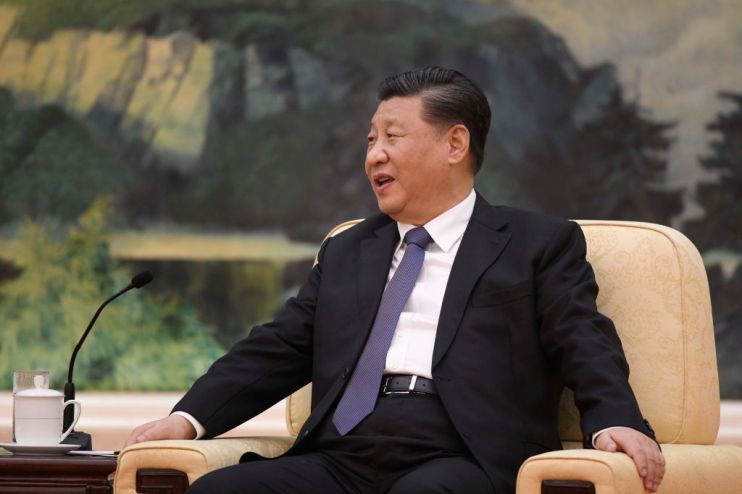Beware the corona crisis power grabs

IN THE midst of the financial crisis of 2008, Rahm Emanuel, soon-to-be chief of staff for US President-Elect Barack Obama, famously announced that “You never want a serious crisis to go to waste. And what I mean by that is an opportunity to do things that you think you could not do before.”
Emanuel was careful to caveat his thoughts. He referred specifically to the ability of governments to use crises to put into place policies in long-term areas of concern such as healthcare, energy and fiscal policy that they had previously put off as being too difficult to action.
Read more: Coronavirus sees banks drop dividends
His point was simply that problems that appear insurmountable in normal times, or are held back by the political conventions of normal politics, might be resolvable in exceptional circumstances.
Unfortunately, throughout history, there have been those who have sought to take advantage of Emanuel’s maxim, but without his qualifications. Whether they are petty bureaucrats, officious law enforcement agencies, established dictatorships, or just politicians looking to amass more control, individuals and regimes have often sought to expand their powers at a time of crisis.
In some famous examples, the Reichstag fire of February 1933 was used by the Nazis to begin the process of dismantling German democracy. Indira Gandhi suspended part of India’s constitution from 1975–77 to deal with “internal disturbances” that she claimed were threatening the country’s national security. And Turkey’s President Erdogan used the attempted coup of July 2016 to declare a state of emergency and partially withdraw from the European Convention of Human Rights.
It goes without saying that the coronavirus pandemic — in both its novelty and extent — requires a response from governments. Democracies around the world have passed laws restricting individual and collective freedoms and mandating new powers that government and its agencies can adopt.
But there is a clear divide between those governments which have built in review mechanisms by their parliamentarians for the extraordinary measures being introduced, and those which have imposed drastic change without any such overview.
This week, coronavirus may have claimed its first democratic victim. In Hungary, Viktor Orban secured sweeping emergency powers on Monday which included suspending future elections, the setting aside of existing laws and allowing prime ministerial rule by degree.
Despite having a rock solid two-thirds majority of Hungarian parliamentarians, Orban rejected a time limit on the legislation. Hungary — which, let us not forget, is a member of the European Union, a club that supposedly defends democracy and therefore has a very big call to make about Hungarian participation in its deliberations — is now essentially under his complete control.
Autocracies are also taking full advantage of the coronavirus crisis. Vladimir Putin has used the excuse of the need for stability in government to engender amendments to the Russian constitution that would reset the clock on term limits in 2024. He is therefore set for a President-for-life position until 2036.
Iran, which has been badly hit by coronavirus, pleads poverty and the supposed impact of sanctions, while continuing to pump money into its foreign adventures and weapons programmes.
And China, where the coronavirus pandemic started and where it spread owing to the suppression of truth by the Communist regime, is taking full advantage of being out of the first phase of the virus by conducting very public offerings of medical and technical largesse to countries still struggling to cope. Beijing’s hope is evidently that generosity of this kind, welcome as it is, will focus global minds away from its culpability for the initial Covid-19 spread.
Even here in the UK, it would appear that we are not immune from the charms of crisis power-grabs. Downing Street has had to intervene after accounts of overzealous policing in response to the government’s social isolation policies, with reports of drones being used to surveil countryside, shoppers being warned that Easter eggs may not be purchased, and Stephen Kinnock MP told off for visiting his elderly parents (he observed social distancing guidelines, for what it’s worth).
Although British police actions are hardly on the scale of other global infractions, former Supreme Court judge Lord Sumption has warned of the dangers, saying: “This is what a police state is like — it’s a state in which the government can issue orders or express preferences with no legal authority and the police will enforce ministers’ wishes.”
Covid-19 requires strict measures to combat. But freedoms are easy to extinguish during an emergency, and very difficult to restore thereafter.
There will always be those who seek to take advantage of a good crisis. We must make sure that our governments do so in the spirit of Rahm Emanuel, rather than Vladimir Putin, and that dictators and autocrats — of real and putative kind‚ remain on notice that their infractions and opportunism will be called to account, rather than being allowed to prosper.